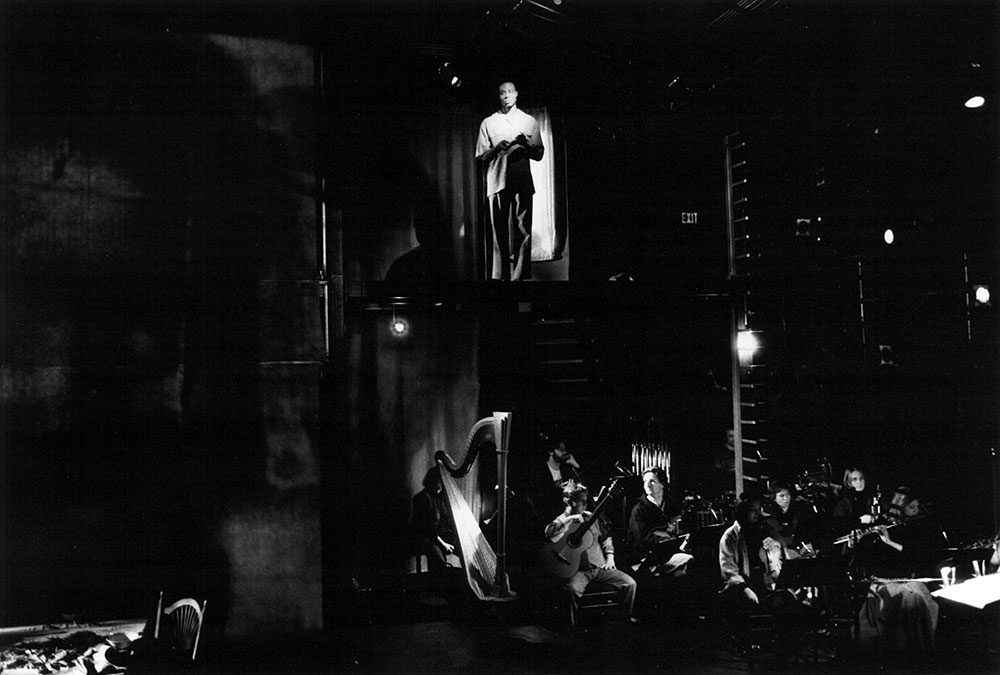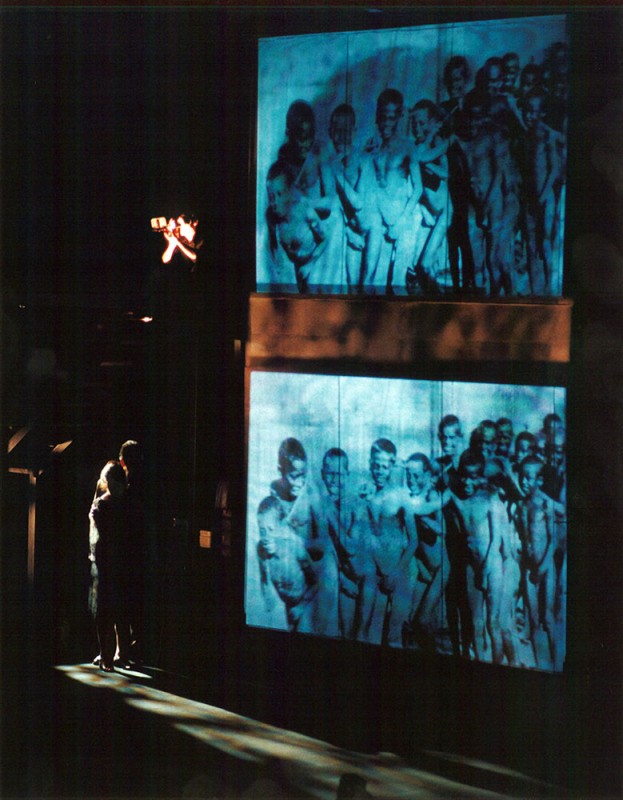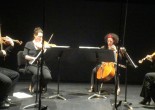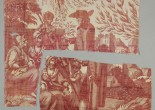Stars and Sadism
Vancouver New Music and the Canadian Opera
Written by John Paton
Attending an evening of opera excerpts is fraught with peril. As a listener, you are forced to jump and skip through what is by nature an extended dramatic form. Nonetheless, I found a great deal of interest in this retrospective of Canadian opera.
The evening began with a brief introduction by a renowned composer in his own right, Giorgio Magnanensi, who invited the three composers featured on the program to the stage to share some brief insights into their works. Owen Underhill, Rodney Sharman, and Peter Hannan all graciously gave much needed context to the works we were about to hear.
With Underhill and Hannan, their sketching of the biographies of Kepler and the Marquis de Sade (to whom we owe the term “sadism”) was helpful preparation for receiving their nuanced interpretations of these historical figures. During these opening remarks, special mention was made to librettists Marc Diamond and Tom Cone, both late veterans of Canadian theatre and relatively new names to me; I left with a vivid impression of the creative inspiration drawn from each of these figures, and a determination to investigate their work in greater detail.
Special mention should also be made to narrator James Fagan Tait, who throughout the evening set the scene for the excerpts about to be heard.
—
The Star Catalogues
The first group of excerpts were taken from Owen Underhill’s The Star Catalogues, an opera focused on the astronomers Johannes Kepler and Tycho Brahé. Brahé was famous for his ability to chart the stars, while Kepler was his assistant who later developed a revolutionary theory that the Earth is in fact not the centre of the universe.
The ensemble included harpsichord and viola de gamba which, being period instruments of a much earlier era, helped a great deal in bridging Kepler’s time with our own. A small chorus of four commented on the action throughout with beautiful harmonies reminiscent of Steve Reich, juxtaposed against the more traditional sonorities coming from the period instruments. Halfway through the piece, a trio of bass Michael Douglas Jones, cello and bass clarinet was notable for its use of repetition in the libretto. Phrases like “All beauty is in the language of numbers” coupled with the more adventurous harmonies, created new resonances between past and present: a compelling new look at an important historical moment.
—
Excerpts from Elsewhereless
Next was Rodney Sharman’s Elsewhereless, which followed five characters through a cataclysmic, though unspecified, event. The excerpts were notable for their creative use of guitar, harp and mandolin, as well as the performance of baritone Steve Maddock. I’ve known Steve to be an incredibly capable jazz singer (and couldn’t help noticing a delightful hint of Nat King Cole in his delivery), yet I was blown away to find he can also act and function in fairly complicated new music opera roles. Very impressive musicianship.
The piece itself seemed to explore the relationships between bourgeois and servant, man and woman in the heat of disaster. Often, traditional social etiquettes and customs were thrown out the window in a moment of unforeseen circumstance. I got the sense that this work was hurt most by being excerpted.
—
The Gang & 120 Songs for the Marquis de Sade
After a brief intermission, it was time to hear excerpts from composer Peter Hannan’s two operas: The Gang, of which only a single short excerpt was heard, and the 120 songs for the Marquis de Sade. Hannan’s scores were distinguished by the presence of electric guitar and keyboard, which made for a great deal of frustrating acoustical imbalance, and when a drum ‘n’ bass beat began during an excerpt of the 120 songs, I found myself shaking my head.
My problem here has to do with a tension that exists between the European Classical tradition and more popular or “vernacular” styles of music. Rock and Roll, Drum ‘n Bass: these are styles that are absorbed in a very different way that the Classical conservatory doesn’t always allow for. Notated music, for one, is nowhere near as big a part of the picture. Instead, artists must master the much more elusive notion of “feel,” in other words, absorbing the fundamentals of the style through osmosis (i.e. a great deal of listening and rehearsal).
The question I find in the back of my mind when witnessing any kind of musical “fusion” is: Is the composer familiar with this style in the same way a working musician would be? Could the composer sub in a working band? If not, chances are the composer is not using these stylistic elements in an authentic way. In turn, the possibility of a successful melding of genres, where the truly strong elements of each style are present, working together to form something new, is lost. In this case, it became simply the cosmetic aspect of the music of today “updating” the classical style so that it might remain “relevant.” For me, in Hannan’s piece it was clear that fundamental questions like how to get acoustic string instruments to blend with electronic D n B grooves (no small feat) had not even been considered.
Hannan had mentioned in his remarks at the beginning of the evening that “people seem to really care about what you do in opera,” and I was definitely not a fan of what seemed like casual appropriations of popular music genres.
—
As mentioned previously, it was hard to get a full and balanced sense of these works from excerpts alone, and perhaps in context, this music would have made more sense and my feelings would have been different. At any rate, it was intriguing to hear what our more cutting edge Canadian composers have been up to in a genre all too often reserved for those dead and gone.
—
Opera Excerpts in Concert was held Friday, October 18, 2013 @ Vancouver Playhouse
Excerpts from Elsewhereless (Rodney Sharman/Atom Egoyan), The Gang (Peter Hannan/Tom Cone), 120 Songs for the Marquis de Sade (Peter Hannan/Peter Hinton), and The Star Catalogues (Owen Underhill/Marc Diamond). Featuring special guest, bass Michael Douglas Jones (NYC), who won a Jessie Award for his performance in the original staging of 120 Songs for the Marquis de Sade.
newmusic.org/festival





